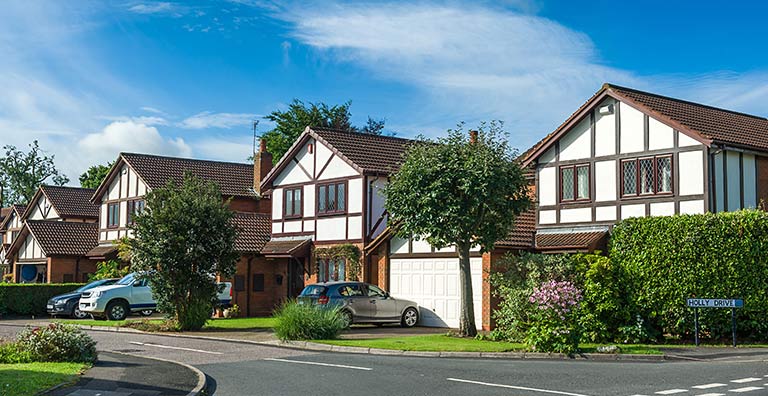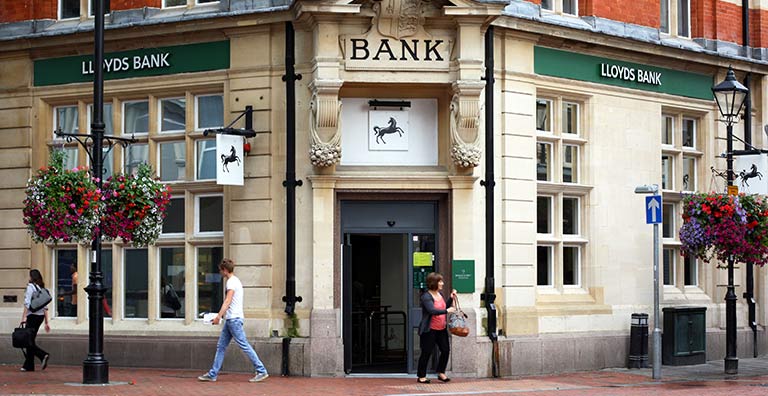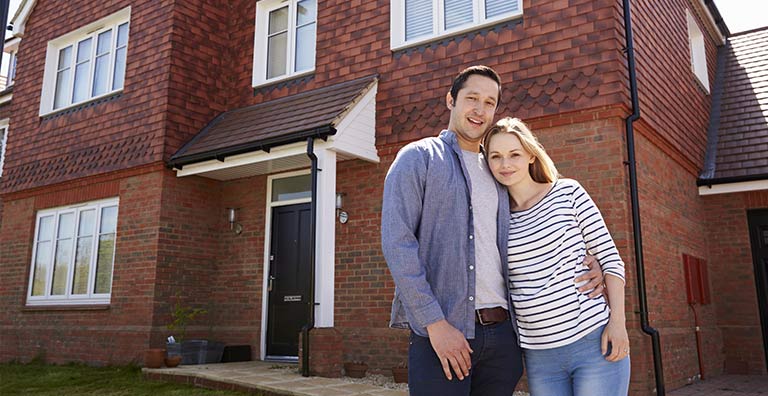Mortgages enable people to buy themselves a house or business. With so many available, the process can become very confusing. Which mortgage is right for you? Do you want a fixed or variable? Are repayment or fixed-interest mortgages better? If you’re asking these questions, then read on for an extensive guide to the different types of mortgages.
Types of Mortgages Contents
We’ve put together this guide to help define the different types of mortgages in simple terms. Click on the links below to jump to a particular type of mortgage:
Repayment mortgage
Interest only mortgage
Standard variable rate mortgage (SVR)
Discounted rate mortgage
Fixed rate mortgage
Capped mortgages
Flexible mortgages
Offset mortgages
Choosing the right mortgage for you
You may also find our other guides interesting on commercial mortgages, guarantor mortgages and remortgaging.
Repayment mortgage
Repayment mortgages are one of the most popular types of mortgages. They enable families to afford a home and pay them off within a set amount of years. Most people choose this mortgage because they want to invest in their future and save money.
How does a repayment mortgage work?
With a repayment mortgage, you pay off some capital with interest each month. This enables you to complete the payments and own the house within 25 years in most cases. Your payments will begin with higher contributions to the interest rates, then as time goes on your monthly rates will pay off the capital (mortgage) loan.
Advantages of a repayment mortgage
Repayment mortgages offer many benefits and are an excellent choice for families:
If you make the set payments, you’ll own your home at the end of the term.
Less interest to pay overall.
Less expensive than interest-only mortgages.
Interest only mortgage
The 2008 recession hit people hard, but interest-only mortgages enabled buyers to purchase a home. Interest-only mortgages are hard to get, and many lenders refuse to offer them. They’re such a popular choice because buyers can pay off interest rates on their home, but not worry about the capital. Interest only mortgages are great for buy-to-let properties, and while they offer many advantages, you should consider the negatives.
How do interest-only mortgages work?
Interest-Only mortgages are getting rarer, due to lenders not wanting to risk taking legal action against home buyers. Buy-to-let landlords often find it easier to get an interest-only mortgage, and they’re a great choice if you want to rent a property to others.
If you secure an interest-only mortgage, you must offer a sizeable deposit and secure a repayment agreement at the end of the term. If you’re unable to afford repayments, you’ll have to sell the property.
Standard variable rate mortgage (SVR)
SVR mortgages aren’t particular types of mortgages but default rates set by each bank. For example, when you rent a property, and the tenancy ends, you go onto a rolling contract. This means you still make the same payments each month until the terms change.
However, many people go onto SVR Mortgages after their original deal finishes and end up paying a lot more. Always check with your lender what their SVR is and ensure you can afford the repayments.
Discounted rate mortgage
Lenders have to compete, which means home buyers can find fantastic deals! One option you should consider is a discounted rate mortgage. Discounted rate mortgages offer lower payment rates on an SVR mortgage for a certain amount of time. However, lenders are free to change the price at any time.
Fixed rate mortgage
Fixed-rate mortgages are some of the most popular choices around. They guarantee you’ll pay the same amount of interest every year for a set term. This is from 1 to 10 years, and you might have heard of fixed-rate mortgages being referred to as “vanilla mortgages.”
Benefits of a fixed rate mortgage
These mortgage types offer many benefits including:
Ideal for first-time buyers to get on the property ladder.
Fixed rates won’t change for the set term, which means the interest rates won’t increase.
You can budget for your mortgage and not worry about payments.
Remember that when the term ends, you’ll transfer onto an SVR mortgage. Check your lender’s general rates to evaluate whether you’ll be able to afford the full mortgage payments.
Capped mortgage
If you’re worried about fluctuating interest rates, then a capped mortgage is ideal for you. This mortgage can still vary, but the interest rate is capped and cannot exceed a specific rate. While capped mortgages offer many benefits, they also can cost more than other mortgages. If you feel the capped amount is too high, you should search for options from other lenders.
Flexible mortgage
Flexible mortgages are ideal for individuals with an uncertain income. They offer high flexibility, although the overall price is higher. With flexible mortgages, you can pay varying amounts each month. You can take a break from payments and wait until your financial situation improves.
However, one of the most important thing you should know about flexible mortgages is they often cost more in the long-term. You should explore all options before finding an adjustable mortgage and buy a cheaper property if you’re worried about meeting your payment schedule. Our team can assist you with choosing the right mortgage – simply contact us and we can help determine which type of mortgage is best for your situation.
Offset mortgage
Offset mortgages are a form of flexible mortgage, which combines your savings with payment rates. When people put money in a savings account, they incur interest over time. Offset mortgages enable you to decrease your payment amounts, through investment.
How do they work?
If you put £5000 into a savings account, you’ll get a set amount of interest in a year. Instead of receiving this interest, you can use it to pay off part of your mortgage. This is ideal for new buyers and can help you pay off your mortgage quicker.
Choosing the right mortgage for you
Choosing a mortgage is complicated, and the decision that can affect your entire future. Think about the pros and cons of each mortgage and decide which is best for your financial situation. All types of mortgages have their advantages and disadvantages and discussing your options with lenders will help you plan for your future.
Mortgages enable you to buy a home and give you lifelong security. While getting a mortgage is daunting, it’s also an exciting time. Our mortgage brokers have years of experience working with a variety of different customers, so don’t be afraid to do your research or seek some advice. If you’re unsure which mortgage would suit your circumstances, feel free to arrange a free consultation here.

Where next?
If you are looking for a new mortgage or to remortgage, try our calculator – a few simple answers will help our brokers find the best deal for you. If you’re not ready yet and would like some more information, take a look at our frequently asked questions.




